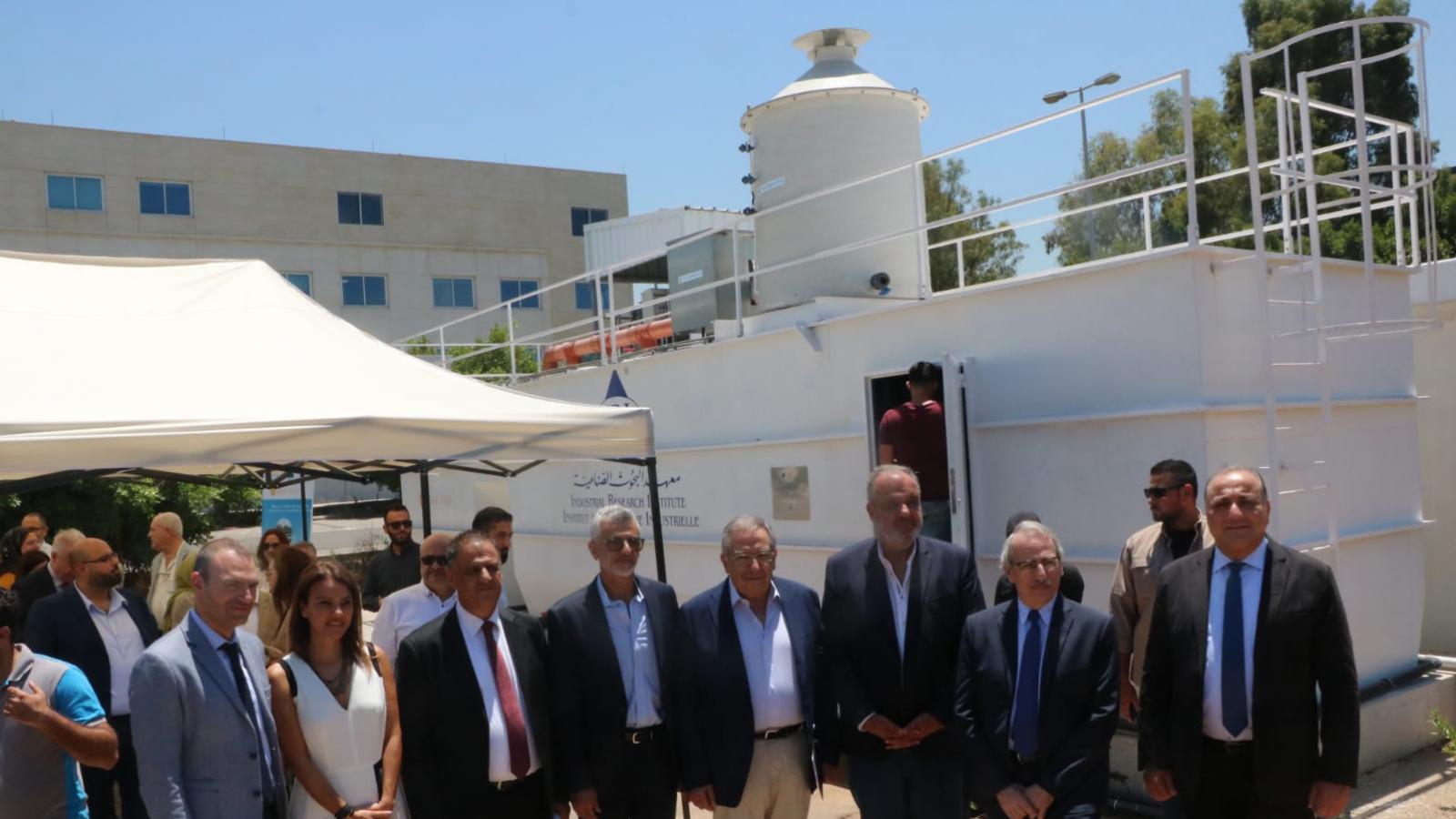MAIA-TAQA commitment to a sustainable energy transition in the Mediterranean
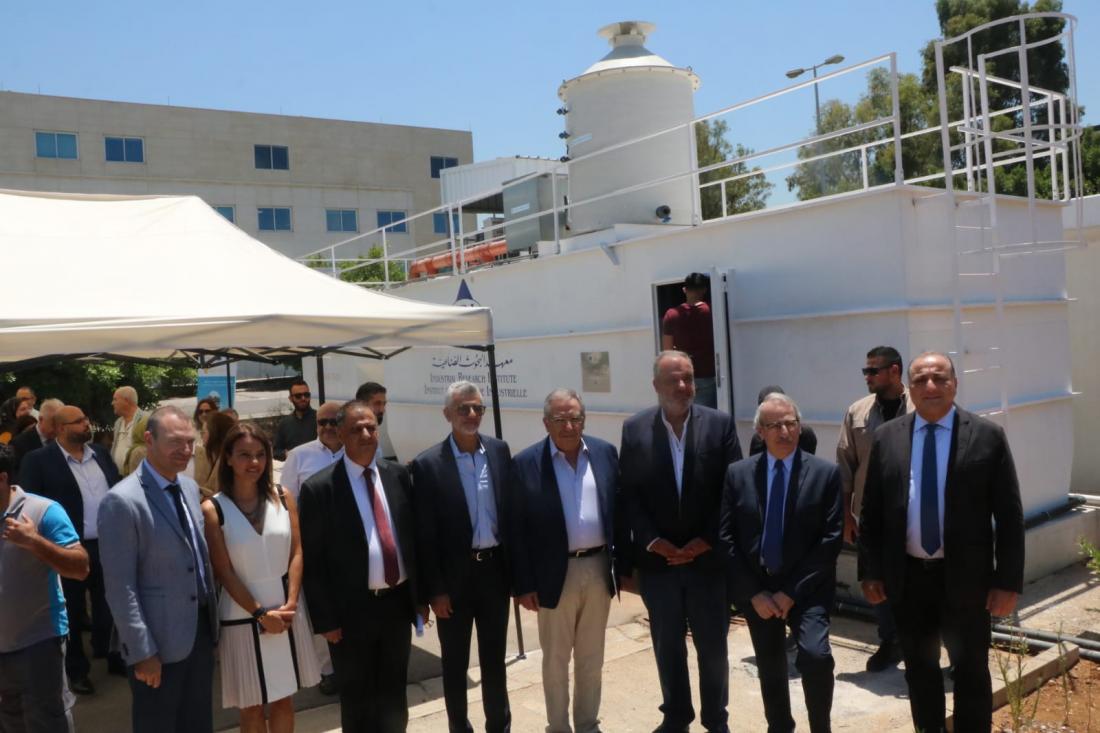
MAIA-TAQA is an innovation project which focuses on energy efficiency and the promotion of renewable energies in the Mediterranean region. But what does MAIA-TAQA mean?
MAIA-TAQA: water-energy, key sectors for survival
This acronym, which seems innocuous to non-Arabic speakers, simply means water-energy in Middle Eastern dialect. What could be more important than tackling these two sectors, essential for the survival of people and more particularly in a country such as Lebanon which has been plunged into unprecedented crises since 2019.
Mobilize New Areas of Investment and Together Improve the Quality of Life for All
This is the title of the MAIA-TAQA project, funded by the European Union under the ENI CBC MED programme, which brings together 8 partners from 6 Mediterranean countries. Launched in September 2019, this project offers different solutions to address the various obstacles that prevent the deployment of renewable energies. In particular, it proposes a capacity building program to overcome the lack of skills; an innovation desk to tackle the lack of access to information; guidelines due to the lack of regulation; vouchers due to lack of funding and targeted Business to Business (B2B) events due to the lack of specific matchmaking.
Three pilot experiments have been set up in Egypt, Jordan and Lebanon, addressing different angles of energy efficiency.
In Egypt, the solar panel equipment of the fruit and vegetable wholesale market (El Amreya) in Alexandria was inaugurated in February 2022. This market is the first to be entirely powered by solar panels in Egypt.
In Jordan, the installation of a solar thermal cooling system on the Aqaba Chamber of Commerce building in southern Jordan, the first of its kind in the country, was inaugurated in October 2022.
Finally, in Lebanon, the installation of a pilot wastewater treatment plant that runs on solar energy at the headquarters of the Industrial Research Institute (IRI) on the campus of the Lebanese University in Hadat, south of Beirut was inaugurated in June 2023.
Wastewater treatment and solar energy: the experience in Lebanon
In order to better understand the ins and outs of a project like MAIA-TAQA, ENI CBC MED programme interviewed the Lebanese partner, the Industrial Research Institute (IRI). Director of the Euro-Lebanese Center for Industrial Modernization (ELCIM) within the IRI, Mr. Naji Abi Zeid, and the communication manager, Ms. Joelle Chebli took the time to share their experience on the MAIA-TAQA project and to explain to us a little more about the situation of renewable energies in Lebanon.
The use of solar energy in Lebanon: a necessity
Since 2019, Lebanon has been trying to survive the multiple crises it is going through. Let us recall the devaluation of the Lebanese pound by 98% of its value between 2019 and 2023 and without going into the long list of crises and disasters, we can mention in this specific case, the repeated power cuts for lack of fuel and existence of dilapidated infrastructure among others. With the high increase in oil prices, Lebanese people had not even enough to power the electric generators, fuel-guzzler, to compensate for the breakdowns which endanger the lives of people (i.e., hospitals without electricity), causing power outages in cold chain which leads to the spoilage of food and obviously the discomfort of daily life without electricity (no pressure for the water to arrive), bringing almost everything to a standstill.
Faced with this situation and thanks to the resilience of the Lebanese, they began to install solar panels not out of ecological awareness but out of pure necessity. Without having foreseen it, this led to exceeding the objective of 12% of primary energy consumption coming from renewable energies set in the Lebanese national action plan for energy efficiency for the period 2016-2020 according to Mr. Abi Zeid.
As Mr. Abi Zeid sums up very well, either we stay in the dark or we turn to solar energy. Ms. Chebli adds that this demonstrates how this problem has turned into an opportunity and makes it possible to increase the share of solar energy in energy supply. That being said, the chaotic installation of solar panels on the roofs of buildings remains to be regulated.
Either we stay in the dark or we turn to solar energy
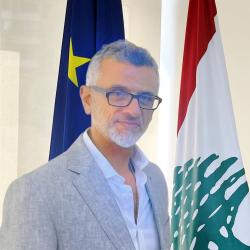
While solar panels can partially solve the energy problem, this will not be able to cover more than 30 to 40% of the energy demand. Other sources of energy are being studied such as wind energy, but this is not entirely conclusive at the moment (lack of available surface area, noise pollution for the neighbourhood to name a few constraints).
Why is the MAIA-TAQA pilot wastewater treatment plant innovative in Lebanon?
First of all, this wastewater treatment plant runs entirely on solar energy, which is a novelty in Lebanon. But what is also innovative is that this experiment was able to be carried out as part of a public initiative. This station makes it possible to water the gardens and green spaces around the IRI buildings within the Lebanese University campus.
In a country where the majority of people turn to the private sector to solve their structural problems, being able to implement a solution to a water treatment problem by public entities was a real challenge. Once identified, the goal of the ELCIM team is to maintain the operation of this station beyond the end of the project, which is planned and guaranteed by the Center itself. In addition, ELCIM plans to extend the area covered by irrigation to an area of 2,500 square meters (currently it covers 700 square meters). Finally, the ultimate objective is to replicate this station in other parts of the country.
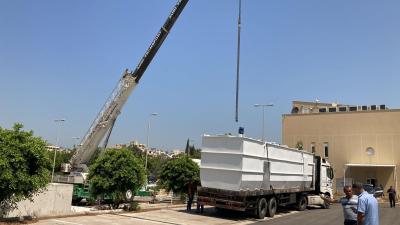
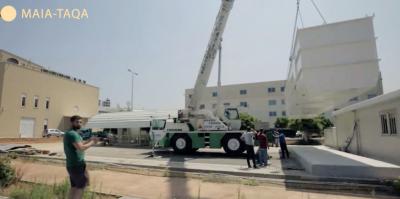
What are the main obstacles to replicating the pilot station?
Even if this pilot experiment demonstrates its feasibility through a reduction in water costs for irrigation, in electricity to operate the station and has a positive impact on the environment, investors are still reluctant.
Treating wastewater is a sensitive issue, and even more since a cholera epidemic broke out in Akkar, in the north of the country in October 2022, which only worsened the health problem and access to clean water. To invest in this sector, there is a lack of initial financing, not enough government regulations in this area, and a lack of awareness of environmental issues.
Health concerns should encourage the establishment of wastewater treatment plants but all the issues linked to the country's economic priorities take over.
In short, venturing in a sector like this one is not easy in the current economic and social situation in Lebanon. Finally, it also depends on the industrial sector in which investors are willing to take a risk. Sectors such as dairy products represent a greater health risk in the application of standards and monitoring of production quality, even if the establishment of a wastewater treatment plant is crucial in this kind of industry.
MAIA-TAQA: much more than pilot experiments in renewable energies
This project is not limited to the 3 pilot experiments mentioned above. In parallel with the implementation of these pilots, a whole section of capacity building was carried out. In Lebanon, around 60 people were trained in the renewable energy sector (mainly engineers and SMEs), 2 trainers were certified and in turn provided training. 3 SMEs obtained vouchers for innovation services worth 20,000 euros per voucher through an Innovation One Stop Shop (IOSS). Similar results were obtained in Egypt and Jordan.
Brokerage events between companies in the renewable energy sector from several Mediterranean countries were organized, which enabled connecting these companies and sign agreements for the exchange of expertise and know-how.
Finally, what makes MAIA TAQA a successful project is above all the dynamism and good understanding between the partners. Mr. Naji Abi Zeid and Ms. Chebli have taken ownership of the project which has become a mission that exceeds the ambitions of the project. The ENI CBC MED programme would like to thank them and wish them good luck in continuing to build and strengthen the capacities of new generations in this region of the world which is full of potential.
The project ends but the mission continues










